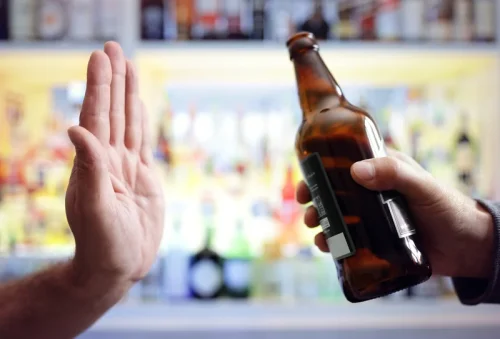
The researchers theorized that participants may self-medicate their sleep problems with alcohol. Research shows beer, but not wine or liquor, was linked to mild or worse sleep-disordered breathing in men. However, this may be because beer drinkers tend to drink more alcohol in general, or because more participants in the study drank beer, so it was easier to find links compared to other drinks.
When Should I Stop Drinking Before Bed?

Consuming alcohol and experiencing restricted sleep reduces alertness during the day. Many of us find ourselves tossing and turning at night, trying to get that elusive 7 to 8 hours of sleep does alcohol help you sleep experts say we need but never finding it. “The reminders to stop drinking caffeine and eating earlier are great and are earlier than I would have ever consciously thought them to be.
Alcohol and REM
- “I recommend waking up at the same time every day, including on weekends, as a consistent sleep schedule is key for healthy sleep,” Dr. Mah says.
- Even moderate amounts of alcohol in your system at bedtime alters sleep architecture—the natural flow of sleep through different stages.
- It has a sedative effect that helps you relax and makes you drowsy, so you fall asleep faster.
- You may also experience parasomnias which are disruptive sleep disorders that occur in specific stages of sleep or in sleep-wake transitions.
- There is a higher prevalence of insomnia in people with ADHD and AUD, but consuming alcohol to manage insomnia generally worsens sleeplessness.
- Alcoholic drinks with a lot of sugar or caffeine may disrupt your sleep further, but beer, gin, vodka, and wine can all impact your sleep.
And we quickly build a tolerance for the sedative effects of alcohol, which means you may need to drink more to have the same initial sleep-inducing effects. Breathing problems — Since alcohol’s sedative effect extends to your entire body, including your muscles, it may allow your airway to close more easily while you’re asleep. This can greatly increase the risk of sleep apnea especially if you drink within the last couple of hours before bedtime. More than 70% of those with alcohol use disorder (AUD) also experience alcohol-induced sleep disorders, such as insomnia, according to scientists in a 2020 review. Regular drinking has also been linked to shorter periods of rapid eye movement (REM) sleep, a disrupted circadian rhythm, and snoring.
How to improve your sleep quality if you do drink alcohol

In these cases, the problem lies with the throat muscles, which relax too much, partially or fully blocking a person’s airway repeatedly during the night. The circadian rhythm is your body’s internal clock, which helps you feel awake during daylight hours and sleepy at night. A crucial part of your circadian rhythm is melatonin production — a natural sleep-inducing hormone. As it gets dark, the pineal gland starts releasing melatonin, so your body can transition more smoothly into sleep.

Managing Chronic Pain and Sleep: Helpful Tips for a Good Night’s Rest
While heavy alcohol use can trigger insomnia, the opposite is also true. People with insomnia have an increased risk of developing alcohol use disorder, potentially because many individuals turn to alcohol as a sleep aid. It’s during this restorative stage of sleep where the body focuses on repairing vital tissues and cells that were damaged during exercise, for example. CBTi reduces symptoms of insomnia among young adults who are actively drinking — even in the absence of direct alcohol intervention. So it’s easy to understand why young people can become locked into a repetitive cycle of sleep deprivation, alcohol dependence, risky behaviour and addiction. Consuming two servings of alcohol per day for men and one serving for women can reduce sleep quality by 9.3%.
Upgrade your bedding
- Alcohol in your body inhibits the release of vasopressin, your body’s natural anti-diuretic hormone.
- Our editors and medical experts rigorously evaluate every article and guide to ensure the information is factual, up-to-date, and free of bias.
- If you do not have an alcohol use disorder (AUD), here are some steps you should take.
- In addition, since poor sleep can negatively affect one’s health, the benefits of a restful night go beyond feeling alert in the morning.
- However, once the body realizes it’s had too much slow wave sleep, the homeostatic drive compensates by allowing us less deep sleep in the second half of the night.
- If you’ve enjoyed a lovely three-course dinner with friends — washed down with a few glasses of wine — then it’s the combination of a substantial meal and the alcohol that’ll affect your sleep.
How to sleep after drinking

